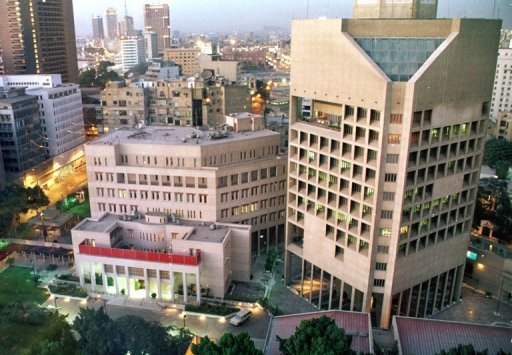By Agencies
BRUSSELS: The European Union imposed sanctions on seven Syrian cabinet ministers on Tuesday for their role in a bloody crackdown on dissent, the latest move aimed at pressuring President Bashar Al-Assad to step down.
As Assad’s forces continued to shell opposition strongholds the EU issued a list of top officials it said were providing material help for the violence.
The list, published in the EU’s Official Journal, imposes travel bans and asset freezes on figures including Health Minister Health Minister Wael Al-Halki, for his role in denying protesters medical care.
Telecoms Minister Imad Sabouni was accused of curbing access to the media. Transport Minister Fayssal Abbas was listed for providing logistical support for repression.
The EU said Education Minister Saleh Al-Rashed was responsible for letting schools to be used as makeshift prisons.
Listed officials are banned from travelling to the EU and any assets they hold with European companies are frozen.
Playing down any possibility of Libya-style military intervention, French Foreign Minister Alain Juppe said the EU’s options were limited. “As long as we have not halted the massacres, we are impotent, but we are not inactive,” he told Swiss radio.
Juppe has called for Assad and his colleagues to be referred to the International Criminal Court.
Oil Minister Sufian Alao and Industry Minister Adnan Salakho were included on the list for conducting policies that finance the government. Also on the list was presidential adviser Mansour Fadlallah Azzam.
The sanctions, adopted by EU foreign ministers on Monday, also froze the assets of the Syrian central bank and banned trading in gold, precious metals and diamonds with Syrian state institutions.
Meanwhile, the UN’s human rights chief called Tuesday for an immediate humanitarian cease-fire in Syria, saying the situation in the country has deteriorated rapidly in recent weeks as authorities reinforce their onslaught against the opposition.
Navi Pillay, the UN High Commissioner for Human Rights, said the international community has to take action to prevent Syrian security forces from continuing their attacks against civilians, which she said had resulted in “countless atrocities.”
“There must be an immediate humanitarian cease-fire to end the fighting and bombardments,” Pillay told an urgent meeting of the UN Human Rights Council.
She urged Syria to end all fighting, allow international monitors to enter the country and give unhindered access for aid agencies to enter Homs and other embattled cities.
The appeal prompted a bitter riposte from Syria’s ambassador to the United Nations in Geneva, who accused the 47-nation council of promoting terrorism in his country.
Before walking out of the room, Fayssal Al-Hamwi said Tuesday’s meeting would only prolong the crisis in his country, where the United Nations estimates at least 5,400 people have been killed since March. Anti-government activists put the real figure much higher.
Pillay cited the report of a UN expert panel last week, which concluded that Syrian government officials were responsible for “crimes against humanity” committed by security forces against opposition members. The crimes included shelling civilians, executing deserters and torturing detainees. Some opposition groups, too, had committed gross abuses, it said.
The panel has compiled a confidential list of top-level Syrian officials who could face prosecution over the atrocities.
Pillay reiterated her call for Syria to be referred to the International Criminal Court “in the face of the unspeakable violations that take place every moment.”
“More than at any other time, those committing atrocities in Syria have to understand that the international community will not stand by and watch this carnage and that their decisions and the actions they take today ultimately will not go unpunished,” she said.
Members of the council are expected to pass a resolution Tuesday condemning “widespread and systematic violations of human rights and fundamental freedoms by the Syrian authorities.”
A draft resolution supported by many Arab and Western nations says the regime’s use of heavy artillery and tanks to attack civilian areas has contributed to the deaths of thousands of people since March.

